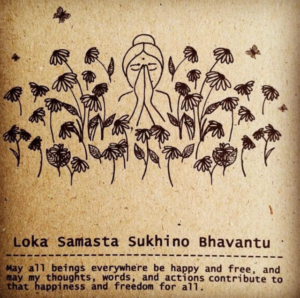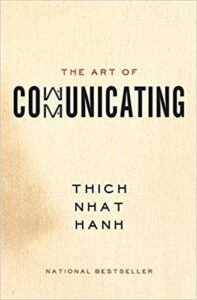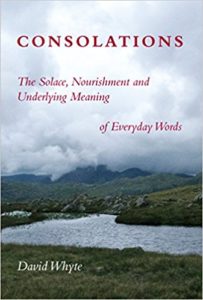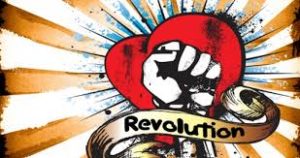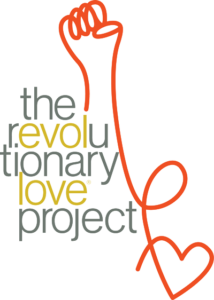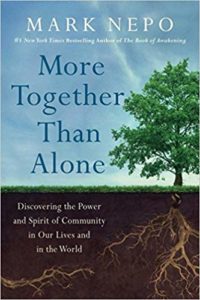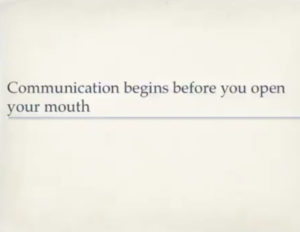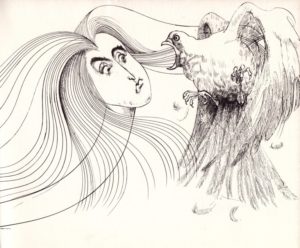communication
January 26th, 2022
January 26, 2022‘Now I’m wondering: is there a way to disentangle the story from the information? Yes, we need to take care of ourselves and each other. Yes, we need to stay aware and intentional, particularly considering the most vulnerable among us. But is there a way to do it with less ego and more observing tenderness?
It turns out, the interpretation of life is relentless. The suspension of interpretation, while brief and groundless, can be a sweet relief. I want less ego-building exercises and more compassion experiments in my life moving forward. I want less roller coasters and more clouds. I want less fear and more love’ -Courtney Martin
Courtney E. Martin is an American feminist, author, speaker, and social and political activist.
Thich
Nhat
Hahn
The Four Elements of Right Speech
‘Loving, truthful speech can bring a lot of joy and peace to people. But producing loving speech takes practice because we aren’t used to it. When we hear so much speech that causes craving, insecurity, and anger, we get accustomed to speaking that way. Truthful, loving speech is something we need to train ourselves in.
In Buddhism there’s a practice called the Ten Bodhisattva Trainings. Four of these 10 relate to Right Speech. A bodhisattva is an enlightened being who has dedicated his or her life to alleviating the suffering of all living beings.
A bodhisattva is someone who can speak with gentle, loving speech and who can listen with compassion.
The four bodhisattva guidelines of the Ten Bodhisattva Trainings for Right Speech:
- Tell the truth. Don’t lie or turn truth upside down.
- Don’t exaggerate.
- Be consistent. This means no double-talk: speaking about something in one way to one person and in an opposite way to another for selfish or manipulative reasons.
- Use peaceful language. Don’t use insulting or violent words, cruel speech, verbal abuse, or condemnation.
When we don’t, repercussions are brutal and, sometimes, irreparable. -dayle
‘Our suffering has been trying to communicate with us, to let us know it is there, but we have spent a lot of time and energy ignoring it.
We know that the suffering inside us contains the suffering of our fathers, our mothers, and our ancestors.
Our suffering reflects the suffering of the world. Discrimination, exploitation, poverty, and fear cause a lot of suffering in those around us. Our suffering also reflects the suffering of others.
If we understand our own suffering it will become much easier for us to understand the suffering of others and the of the world.
But unless we can listen to and acknowledge our own suffering, we will not really be able to help.’
On Being.
Remembering Thich Nhat Hanh, Brother Thay
‘The Venerable Thich Nhat Hanh, revered Zen master, teacher, and poet, died on January 22, 2022, in his native Vietnam. Brother Thay, as he was known by his community and students, transmuted what he had experienced of chaos and bloodshed in his country and his life into an ability to speak with equal measures directness and compassion to the many conflicts and bewilderments of contemporary life. Martin Luther King Jr. nominated him for the Nobel Peace Prize. He was a great teacher of the wonderful practice of “walking meditation.” He taught a way of living to face suffering, fear, and violence inside and beyond ourselves and yet to become “fresh, solid, and free.” Krista sat with him for this rare conversation in the early years of this show, and it has touched many. It is astonishing to re-experience the deep, enduring wisdom this monk leaves for our world now.”
Host Krista Tippett.
Revolutionary ❤
July 28, 2018David Whyte
Heartbreak is unpreventable; the natural outcome of caring for people and things over which we have no control
Heartbreak begins the moment we are asked to let go but cannot, in other words, it colors and inhabits and magnifies each and every day; heartbreak is not a visitation, but a path that human beings follow through even the most average life. Heartbreak is an indication of our sincerity: in a love relationship, in a life’s work, in trying to learn a musical instrument, in the attempt to shape a better more generous self. Heartbreak is the beautifully helpless side of love and affection and is [an] essence and emblem of care… Heartbreak has its own way of inhabiting time and its own beautiful and trying patience in coming and going.
Maria Popova:
“Words belong to each other,” Virginia Woolf asserted in the only surviving recording of her voice. But words also belong to us, as much as we belong to them — and out of that mutual belonging arises our most fundamental understanding of the world, as well as the inescapable misunderstandings that bedevil the grand sensemaking experiment we call life.
David Whyte:
Heartbreak is how we mature; yet we use the word heartbreak as if it only occurs when things have gone wrong: an unrequited love, a shattered dream… But heartbreak may be the very essence of being human, of being on the journey from here to there, and of coming to care deeply for what we find along the way.
[…]
There is almost no path a human being can follow that does not lead to heartbreak.
Then, p. 113-115 in Consolations:
Hiding is a way of staying alive. Hiding is a way of holding ourselves until we are ready to come into the light. Hiding is one of the brilliant and virtuoso practices of almost every part of the natural world: the protective quiet of an icy northern landscape, the held bud of a future summer rose, the snowbound internal pulse of the hibernating bear. Hiding is underestimated. We are hidden by life in our mother’s womb until we grow and ready ourselves for our first appearance in the lighted world; to appear to early in that world is to find ourselves with the immediate necessity for outside intensive care.
Hiding is an act of freedom from the misunderstanding of others, especially in the enclosing world of oppressive secret government and private entities, attempting to name us, to anticipate us, to leave us with no place to hide and grow in ways unmanaged by a creeping necessity for absolution naming, absolute tracking and absolute control. Hiding is a bid for independence from others, from mistaken ideas we have about ourselves, from an oppressive and mistaken wish to keep us completely safe, completely ministered to,and therefor completely managed. Hiding is creative, necessary and beautifully submerse of outside interference and control. Hiding leaves life to itself Hiding is the radical independence necessary four our emergence into the light of a proper human future.
Parker Palmer
p. 161:
Suffering breaks our hearts, but the heart can break in two quite different ways. There’s the brittle heart that breaks into shards, shattering the one who suffers as it explodes, and sometimes taking others down when it’s thrown like a grenade at the ostensible source of its pain. Then there’s the supple heart, the one that breaks open, not apart, the one that can grow into great capacity for the many forms of love. Only the supple heart can hold suffering in a way that opens to new life.
p.39:
We both know that everyone has inner wisdom, and that one of the best ways to evoke it is in dialogue.
p. 161
Does a nation-state have a heart that can become supple enough to respond to collective suffering without violence?[…] I am not going to yield to cynicism. There are enough real-world facts and possibilities to justify hope.
p. 172
Pay attention to what’s right here, right now, and you’ll be rewarded immediately–the Beloved Community is in our midst.
pp. 117-188
Keep reaching out means saying to the world, “I’m still a member of this community. I have a voice and things I need to say, and I want to be part of the conversation.” Seeking Sanctuary is about finding the solace and support we need when our engagement with the rough-and-tumble world of politics starts to cost us our physical and mental well-being. I’m a Quaker. I stand in a religious tradition that asks me to live by such values as community, equality, simplicity, and nonviolence.
Recognize manipulations of
F
E
A
R
“Violence is what happens when we don’t know what to do with our suffering.” [Palmer]
Valarie Kaur is a civil rights activist whose personal lens is colored through feminism and inspired by the Sikh concept of the warrior-saint.
p. 157:
Valarie is redefining and reviving the great tradition of nonviolent action in terms that respond to what Martin Luther kIng Jr. called “The fierce urgency of now.”
Quoting Thomas Merton:
“Loving God is a piece of cake compared to loving another human being. Being human is harder than being holy.”
Revolutionary Love
Declaration of Revolutionary Love:
We declare love even for our opponents. We vow to oppose all executive orders and policies that threaten the rights and dignity of any person. We call upon our elected officials to join us, and we are prepared to engage in moral resistance throughout this administration. We will fight not with violence or vitriol, but by challenging the cultures and institutions that promote hate. In so doing, we will challenge our opponents through the ethic of love.
Thich Nhat Hanh
Enlightenment for a wave is the moment the wave realizes that it is water. At that moment, all fear of death disappears.
Profoundly, grace comes to the wave when it realizes what it is made of. Since it has risen from the very same water into which it will crash its fear of ending is somehow lessened. For it is already a part of where it is going. Can it be that you and I, like simple waves experience such an enlightenment the instant we realize that we are all made of the same water? […] I think now that the other way to read all t his is to say that enlightenment is the moment we realize that we are made of love. At that moment, all fear of living disappears. For grace comes to the heart when it realizes what it is made of and what it has risen from.
-Mark Nepo, The Book Of Awakening
“The ‘Go away’ tribe believes that human beings by nature are self-serving and untrustworthy, in need of control. The ‘Go away’ tribe believes in stringent laws and constraints, both moral and legal, to ensure that people don’t run amok. The ‘Come, teach me’ tribe believes that human beings by nature are kind and trustworthy. The ‘Come, teach’ tribe believes in cultivating laws that empower freedom, to ensure that people actualize their gifts through relationship.
While Mark was a perceptive diagnostician of the modern world, offering insights into the human cost of industrialization. Marx foresaw that capitalism and industrialization break people from their true nature. In time, the modern world alienates from our true selves, which leads to fear and the strident calls of the “Go away’ tribe. Regardless of the type of government we support, there is always the need to repair that brokenness and to restore us to our true nature–from which we rediscover, one more time, that we are more together than alone.”
What we see across the devoid is us. We have created the systems we suffer under.”
Walter Starke
I realized that the spiritualization of our nation’s corporations is the most important development that can possibly happen for the spiritual growth of the the world as a whole.
On Dialogue
February 24, 2017[Ralph Steadman art]
In spite of this worldwide system of linkages, there is, at this very moment, a general feeling that communication is breaking down everywhere, on an unparalleled scale…what appears [in the media] is generally at best a collection of trivial and almost unrelated fragments, while at worst, it can often be a really harmful source of confusion and misinformation.
He terms this “the problem of communication” and writes:
Different groups … are not actually able to listen to each other. As a result, the very attempt to improve communication leads frequently to yet more confusion, and the consequent sense of frustration inclines people ever further toward aggression a and violence, rather than toward mutual understanding and trust.
More from Maria Papova/brainpickings and David Bohm:
“It is clear that if we are to live in harmony with ourselves and with nature, we need to be able to communicate freely in a creative movement in which no one permanently holds to or otherwise defends his own ideas.
Language is collective. Most of our basic assumptions come from our society, including all our assumptions about how society works, about what sort of person we are supposed to be, and about relationships, institutions, and so on. Therefore we need to pay attention to thought both individually and collectively.
“Dialogue” comes from the Greek word dialogos. Logos means “the word,” or in our case we would think of the “meaning of the word.” And dia means “through” — it doesn’t mean “two.” A dialogue can be among any number of people, not just two. Even one person can have a sense of dialogue within himself, if the spirit of the dialogue is present. The picture or image that this derivation suggests is of a stream of meaning flowing among and through us and between us. This will make possible a flow of meaning in the whole group, out of which may emerge some new understanding. It’s something new, which may not have been in the starting point at all. It’s something creative. And this shared meaning is the “glue” or “cement” that holds people and societies together.
Contrast this with the word “discussion,” which has the same root as “percussion” and “concussion.” It really means to break things up. It emphasizes the idea of analysis, where there may be many points of view, and where everybody is presenting a different one — analyzing and breaking up. That obviously has its value, but it is limited, and it will not get us very far beyond our various points of view. Discussion is almost like a ping-pong game, where people are batting the ideas back and forth and the object of the game is to win or to get points for yourself…
In a dialogue, however, nobody is trying to win. Everybody wins if anybody wins. There is a different sort of spirit to it. In a dialogue, there is no attempt to gain points, or to make your particular view prevail. Rather, whenever any mistake is discovered on the part of anybody, everybody gains. It’s a situation called win-win, whereas the other game is win-lose — if I win, you lose. But a dialogue is something more of a common participation, in which we are not playing a game against each other, but with each other. In a dialogue, everybody wins.”
